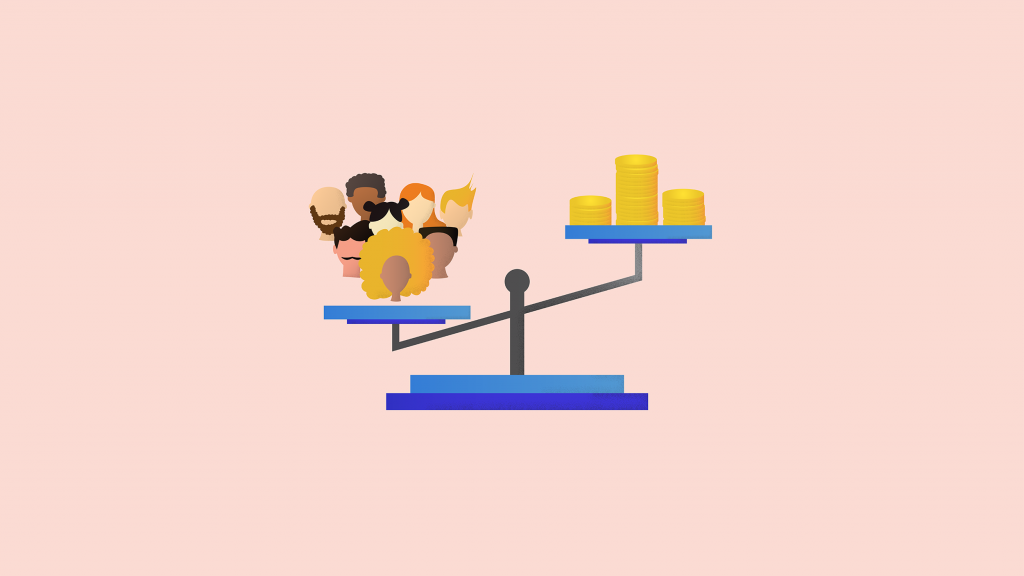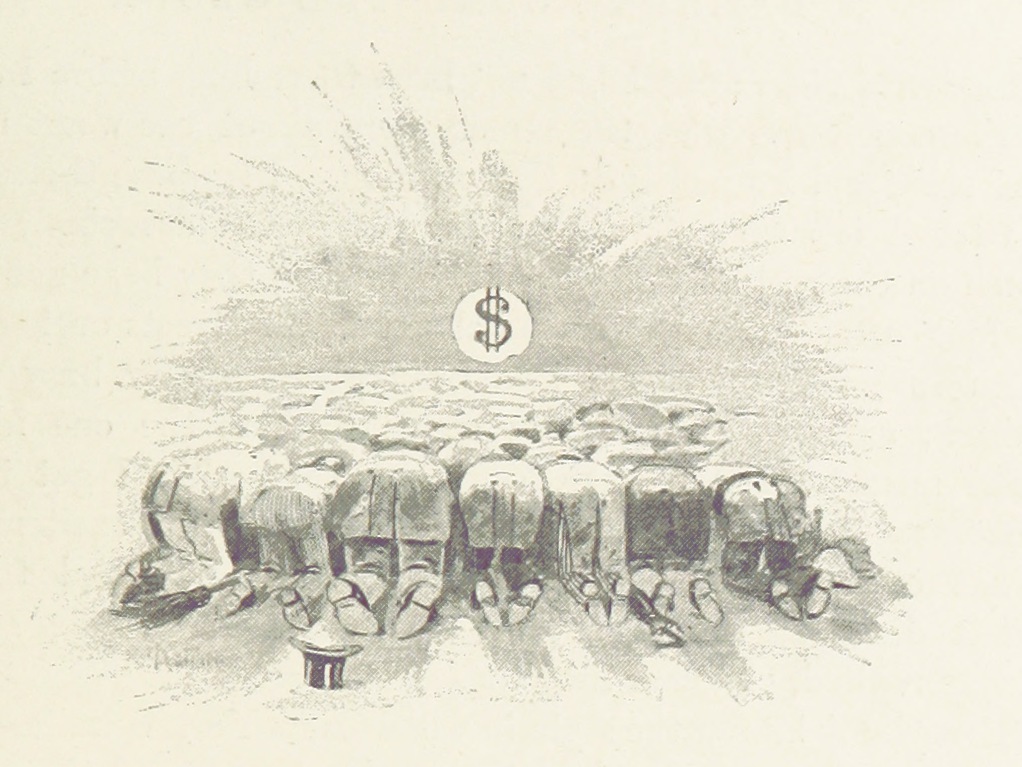You know the cost, but what’s the value?

I recently listened to the first of four lectures by former governor of the Bank of England, Mark Carney, in the BBC’s 2020 Reith Lectures series. The series ‘How We Get What We Value’ raises the subject of how the world has come to prioritise financial values over human values. This he says, has led to the triple threat of credit, COVID and climate. It’s worth a listen if you get a chance, and I’ll be sure to tune into the three remaining lectures.
Dr Carney raises a number of great points. He peppers the lecture with nuggets, jewels and bites of information, economic theory, references and books to read.
There are also a number of questions that arise when listening. Perhaps because I have only ventured into the introductory lecture so far, I was left feeling I wanted him to go deeper into some of the areas addressed. Particularly around the encroachment of the market on civil society and why our economies continue to pull focus away from human values.
It is great that someone such as Dr Carney is raising the points he does. But part of me was left feeling what if? What if some of these key themes and warnings had been made more prominent during his time as a central banker? Yes as a civil servant the reality is there was little he could have said on the matter at the time. However, when looking back over the past decade it seems like few of our economic decisions as a country have been made based on the value of life. Placing much more value on the markets and prioritising financial gain over human values.
We could have taken decisions far earlier to tackle issues such as climate change and poverty that would have made a difference sooner and faster.
It’s all well and good to have opinions and thoughts about how our financial system should work to better reflect and serve society. Better late than never. But actually changing it now, that is the real challenge.
Where did it all go wrong?

So let’s start to break down where things are going wrong. The distinction between values and value is key. What we acknowledge as cultural norms, expected behaviours, morals, right and wrong are our values. These inform the market over what is acceptable or not. Value is the importance, worth or usefulness we see in something, specific to time and situation. Goods and services are more often than not priced based on this value.
Our values and what we see as of value are important but often overlooked. As a society we don’t give the time or space deserved to explore and consider these two areas. After all there is no simple reporting mechanism to chart what our values are and why.
Furthermore, it seems like the markets, the things that govern our economies, have been completely out of step with what we value and what our values are for some time now.
The problem, as Dr Carney alludes to, stems from the reduced idea of Adam Smith’s invisible hand working through the markets to create prosperity.
Smith, known as the Father of Capitalism/Father of Economics, is noted with the idea of that invisible hand and that it would produce what was in the best interests of society.
Perhaps we’ve taken Smith too literally. After all I never read my copies of Smith’s ‘The Theory of Moral Sentiments’ or ‘The Wealth of Nations’. Year by year they’ve collected another layer of dust sitting untouched on the shelf. Perhaps we all need to do more to properly understand what Smith actually meant when he wrote it. We’ve given too much freedom to the markets. Given too much trust to the invisible hand.
Our blind faith can blind us
‘When we grant an entity infinite wisdom we enter the realm of faith. Faith can guide life, but blind policy, and such cognitive capture led to the self-cancellation of the policymakers’ judgement as only the market knows.’
Dr Mark Carney
That’s where we are at today. We have given far too much over to the idea of the markets knowing best. We have ignored or disregarded what is really important. And perhaps in many ways we do this with so many other aspects of the economy and economics.
The New Economics Foundation, for example has been fighting for many years to change how economics is taught in schools and universities, to break down the barriers between us and them. The people and the markets. The planet and business. Economics affects us all.
But Economics has not been made accessible to all. If the markets and our economies are meant to be creating prosperity for society, shouldn’t more of us be invited to join the conversation about how that should look. Shouldn’t we all be given some rudimental road maps at least that can help more of us navigate the economic structures that govern our lives.
“Too often the economy can look like a stitch up between large, distant institutions and large, distant corporations. It looks like this because frequently it is.”
New Economics Foundation
A lesson from this year
We need to give more time to building collective insights that reveal what we value and why. Why are certain values important to certain people and how can we broaden understanding and access to designing economic systems that we all have to live within.
This COIVD year has been difficult and challenging, destructive and depressing. But there are lessons we must take from it.
If we were lucky, it gave us a chance to pause and think about what we value ourselves. We observed or were part of a huge selfless, mutual effort to help out those in need, where we were not expecting anything in return.
Many of these acts and activities did not create monetary wealth. Instead they created wellbeing, a sense of connection and meaning. And this was far more valuable than money.
Let’s also not forget that survey in the spring that showed how 82% of Brits wanted ministers to prioritise health and wellbeing over GDP. Perhaps these are the collective social values that the markets should finally pay attention to.
AKOU also took time this year to explore how the pandemic has affected our sense of connectedness. We will be launching our new platform in January that can help us all to better understand the value of relationships. Read more on this journey.
Value through the lens of Christmas
Finally fitting for this time of year, Dr Carney makes reference to two ideas around Christmas.
The first ‘The Gift of the Magi’ is a short story by American writer O. Henry. In it a young penniless couple have to go to great lengths to get each other presents. Della cuts off her hair for money to buy Jim a watch chain. Jim sells his watch to buy Della a set of hair brushes. Both gifts are now worthless to the receiver, but the giving proves how priceless their love for each other is.

The second is the Deadweight Loss of Christmas. This theory by economist Joel Waldfogel, takes away any sentiment or idea around the value or gift giving. It instead equates the value of the gifts as being measured by the experience of the one who receives it. Waldfogel suggests if you’re given a crappy present that you don’t like or can’t use – no matter the cost – it’s a loss of worth to the economy, it has little or reduced value to the beholder. If you really want to spoil your festivities you can read his paper.
The Deadweight Loss of Christmas proves perfectly how our markets and economic theory have come to lose touch with human and real lived experience. Of course we should be doing more to reduce waste, so buying less is a good thing. However this isn’t the point Waldfogel is making. He is purely focusing on the economic loss of a gift. He misses that there is still great value in the exchange of a gift. Doesn’t our happiness increase when we receive or give a gift? It’s just that this act of giving has no monetary value.
Value is more than just money
What better time than Christmas to try and reflect on the direction we wish to travel towards. Hopefully it’s more towards Della and Jim’s experience rather than the Deadweight Loss of Christmas.
Hopefully we can all start to try to pay more attention to the value of things in a non-financial way. Perhaps we can all learn to recognise the immense impact that they can have on our mental health, wellbeing and happiness.
